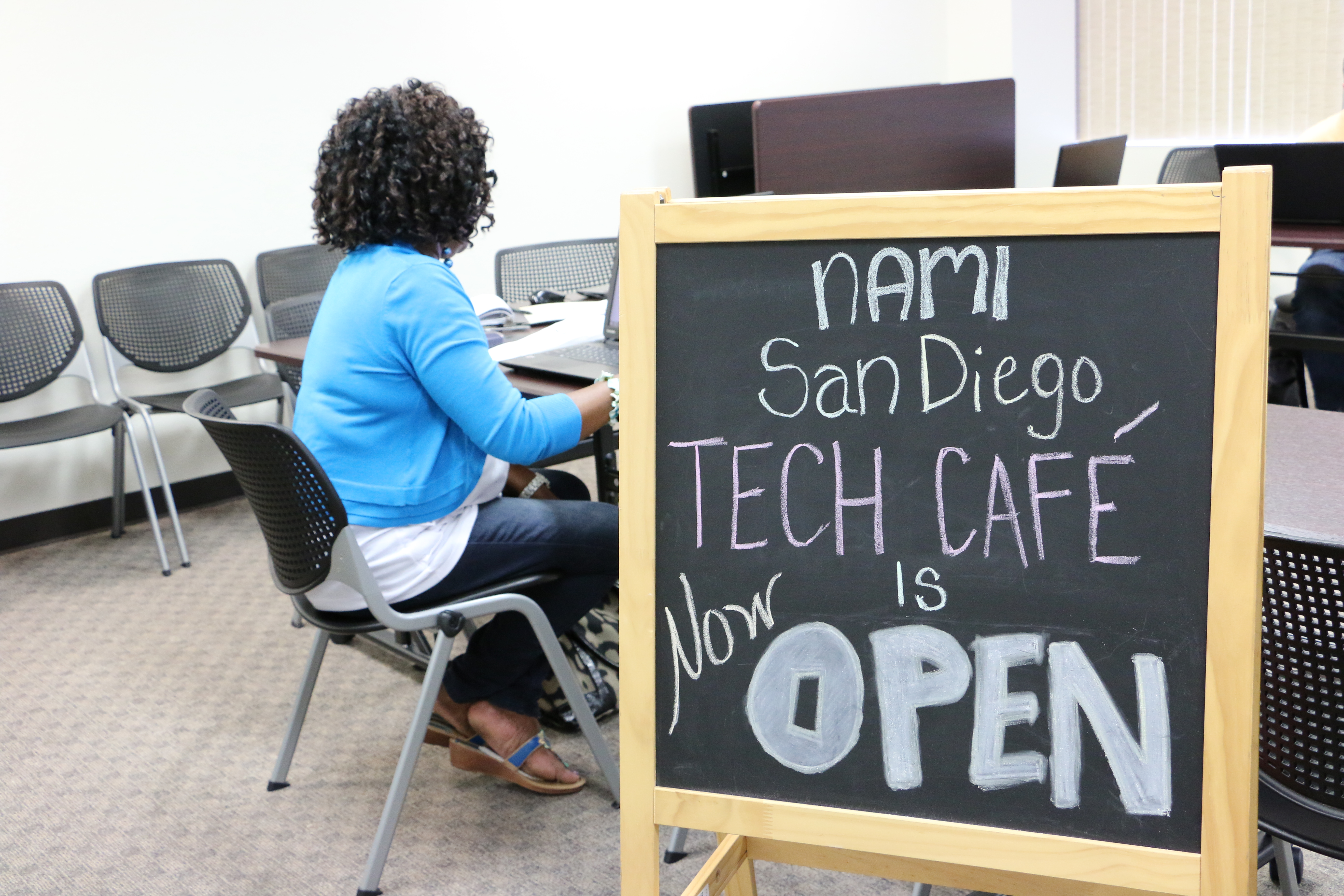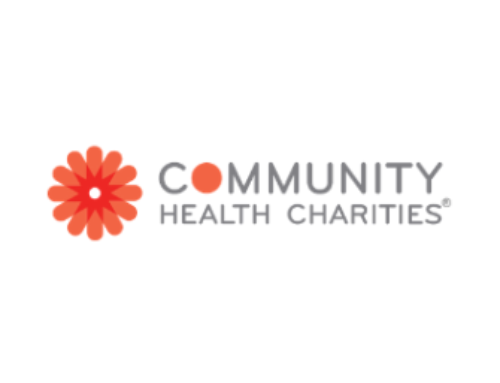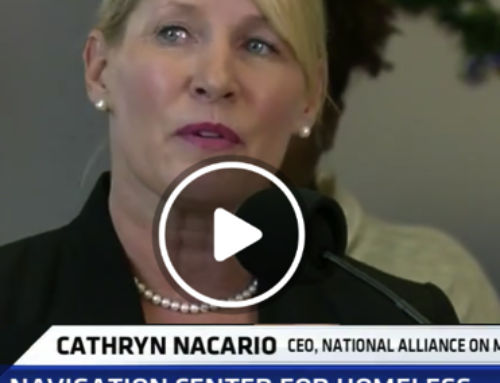Leaders of the San Diego affiliate of the National Alliance on Mental Illness (NAMI) had been growing increasingly concerned that as new apps were being introduced and adopted daily, many of the consumers whom NAMI serves seemed hopelessly stuck at the square one stage of “What is an app?”
“We needed to correct that,” NAMI San Diego Chief Operating Officer Sue Skube told MHW. Fortunately, Skube said, the affiliate is located in a forward-thinking county that had identified improving technology access and adoption as a priority — and that was prepared to use funds from the state’s landmark Mental Health Services Act to bring about improvements.
The result for NAMI San Diego was establishment of a “Tech Café” with a signature aim of basic computer training for persons with serious mental illness, but with an even broader scope that greatly expands the influence of technology in consumers’ and families’ lives in a number of ways. This fall, NAMI San Diego learned that its initiative was being honored by NAMI, the National Council for Behavioral Health, and pharmaceutical companies Otsuka Pharmaceutical Development & Commercialization Inc. and Lundbeck with a 2015 Connect 4 Mental Health Community Innovation Award in the category of creative use of technology.
Participants also have an advanced class opportunity, which is a focused class on subjects such as Internet security or advanced Excel training.” –Renee Cookson
“We have had people who have thanked us for the impact this has had on their lives,” NAMI San Diego Community Development Director Renee Cookson told MHW. “People will say, ‘I know I am able to go back to school now,’ because you can’t hand in paperwork to your instructors now,” with education having become technology-driven.
Focused trainings
As described in NAMI San Diego’s application for the Connect 4 Mental Health award, “The ‘Tech Café Technology Toolbox’ is instrumental in educating and empowering individuals through the use of technology so they can schedule medical appointments, access health/wellness resources, gain employment, address transportation issues, access online education, and connect with family and friends.”
The foundation of the consumer-focused effort is the teaching of basic computer skills, in a six-week, 15-hour hands-on class monitored by an instructor and an assistant who is usually a person with lived experience of mental illness or a family member. Class sizes generally range from 8 to 20. The classes take place at clubhouse and community center locations throughout the San Diego area, and the intent is for students to keep the laptop devices on which they are trained.
“Participants also have an advanced class opportunity, which is a focused class on subjects such as Internet security or advanced Excel training,” said Cookson.
Skube explained that, as is the case with most NAMI San Diego initiatives, leaders emphasized working with community partners on their technology-focused effort. These included the county legal aid society, an organization serving seniors and a for-profit business that teaches computer classes. In preparation for the initiative, the school’s instructors received guidance focused on approaches for working with a population with serious mental illness. Still, NAMI leaders ultimately ended up determining that it made more sense to bring the computer training function in-house.
“What we found was that the pace of the classes needed to be even more adaptive,” Skube said, taking into account the effects of the students’ symptomology.
By last June, an average of just over one class a day had been held in the first 169 days of the effort, NAMI San Diego has reported. Classes have been taught in English, Spanish, Arabic and American Sign Language, and there have been classes with accommodations for the visually impaired as well.
NAMI San Diego leaders say most of the participants have had no prior experience working on a computer. Left with that same status, these individuals would be shut out of numerous educational and employment opportunities in an age where, for example, paper applications for jobs and even public benefits are gradually becoming a thing of the past.
“Seniors really enjoy the classes. It has opened up a new world for them,” Skube added. “All of the students learn how to set up e-mail and Skype.”
In one particularly noteworthy case, a woman living in a group home who designed jewelry was able to set up a business to sell some of her pieces online. In addition, this experience empowered her to feel that she could get out of the group home setting and live independently.
Data promising
The initiative is around halfway through its three-year government funding cycle. Out of the nearly 400 individuals who have taken the computer classes, 90 percent have completed the six-week course and graduated from the program, with proud completers receiving a certificate that resembles a diploma.
The NAMI San Diego technology toolkit also includes weekly webinars on wellness topics and other subjects. The affiliate also has established a chat function for its helpline, and an online “Ask NAMI San Diego” service. So there are numerous ways in which newly trained consumers can apply their computer skills to engaging online and working to improve their health and well-being. As the award application states, “We set out to always scan for best practices and strategies as a practical approach.”
“Tech Café is out in the communities,” said Cookson. “In the future, we have dreams of operating an actual center.”
Bottom Line…
An award-winning initiative from the San Diego affiliate of the National Alliance on Mental Illness seeks to close a digital divide that has kept many individuals with serious mental illness from becoming full participants in their communities.
By Gary Enos






